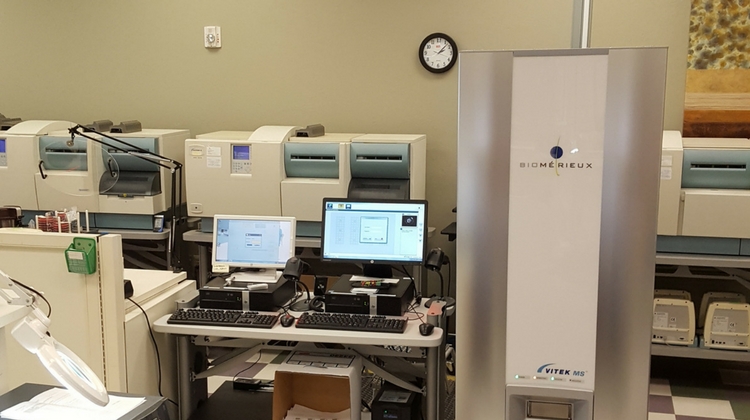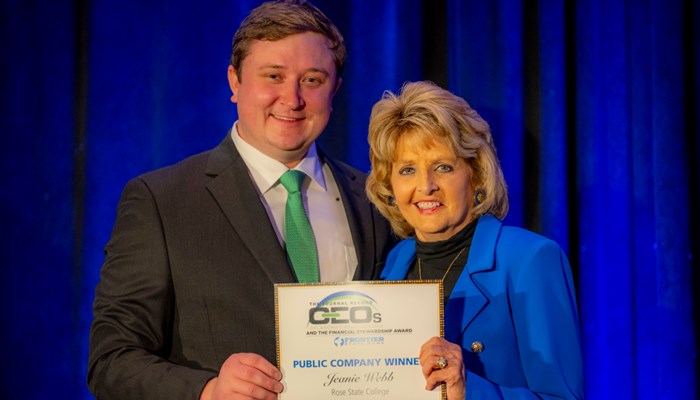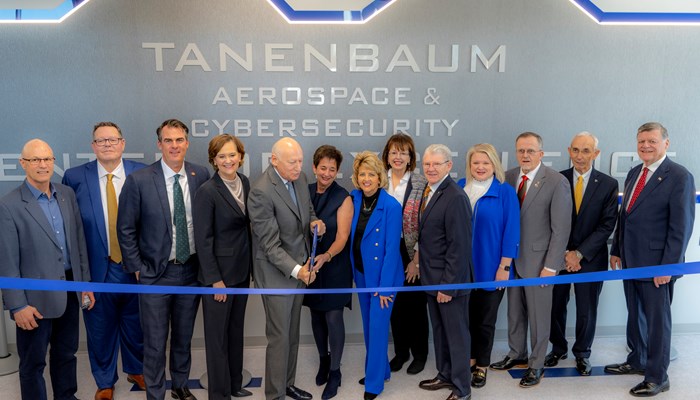Careers that Change the World: Medical Laboratory Technology Published November 10, 2016

For students seeking to start a career in the medical profession, medical laboratory technology is an often-overlooked field in the world of medicine. However, this industry is imperative in helping doctors diagnose ill patients. A medical laboratory technologist runs diagnostics on blood and other bodily fluids to determine the bacteria, or illness at hand.
“Medical laboratory technology is relatively unknown in the health care field,” says Professor Carlo Ledesma. “In reality, about 70 percent of doctors’ decisions are made by these laboratory methods.”
Rose State offers this life-changing degree and has seen great success with the program. Professor Carlo Ledesma, who has been recognized as one of the Top 25 Phlebotomy Professors in the nation, leads the program, which prepares students to embark on a rewarding career. Working in a lab requires specific structured training, and Rose State’s program helps graduates to qualify for positions within the field of laboratory science.
“We see our profession as saving lives behind the scene,” says Ledesma. “We are doing investigative work to help doctors see what might be the problem.”
Students looking to enter this industry must be able to think critically and should enjoy science. Many students eventually run across this profession after taking classes and discovering an affinity for microbiology.
As with any of Rose State’s programs, there is a healthy ratio between students and teachers. Professors feel confident in every single student’s ability once leaving the program. About 20 students are admitted to the MLT program each year. However, if more students apply, accommodations may be made if students meet the required qualifications.
The Medical Laboratory Technology program is highly tailored and personalized. Part of the acceptance process includes an orientation with Professor Ledesma to review their transcript. If a student doesn’t quite meet the requirements, he’s happy to advise students on their necessary progression and help them find a way to achieve their goals.
Some individuals entering the MLT program already have a bachelor’s degree in biology or chemistry, but are unable to find a job. This problem hardly exists for MLT graduates because the demand in this field is high, with a wide variety of open positions. This field is projected to grow 16 percent from 2014 to 2024, according to the Bureau of Labor Statistics.
Thoughts from a Rose State Medical Lab Technology Student
Amber Reed, Rose State alum and graduate of the MLT program, says her positive experience in MLT led her to a successful career. While a nursing major, Reed took a microbiology class and had a quick, natural understanding of the subject. Professors mentioned the MLT program as a potential opportunity, but she remained strong in her decision of a nursing degree. After a break from school and further consideration, Reed decided to go back and pursue the MLT program.
She remembers all of her teachers being extremely helpful, encouraging, and knowledgeable in the industry. “Carlo Ledesma is very approachable and involved. He’s a phenomenal professor,” says Reed. “He has a good way that helps you remember things that you wouldn’t normally remember.”
Today, Reed works at a reference lab, DLO in Edmond, and has been there for a year and a half. She has already made a large impact. Soon after Reed started, a new tool called a MALDI-TOF, Matrix Assisted Laser Desorption/Ionization – Time of Flight, was delivered to their lab. While others were perplexed by the tool and unsure of its function, she quickly took an interest to it and discovered how it worked. She now serves as key operator of the MOLDI-TOF. Reed explains how efficiently this instrument works compared with older technologies.
“The MALDI-TOF can identify something in five minutes,” says Reed. “Now we can tell doctors quicker about what the bacteria is so that they can determine what to treat it with.”
While older techniques in microbiology take longer to form accurate results, this tool makes it possible to give the doctors a diagnosis much sooner. This means shorter hospital stays and better chances of survival in rare bacterial cases.
Changing the World with Medical Lab Technology
Ready to get started? Find out more about our Medical Laboratory Technology and what this exciting field can offer you. With an MLT degree, you can help doctors treat patients effectively and make a difference in hundreds of patients’ lives.



